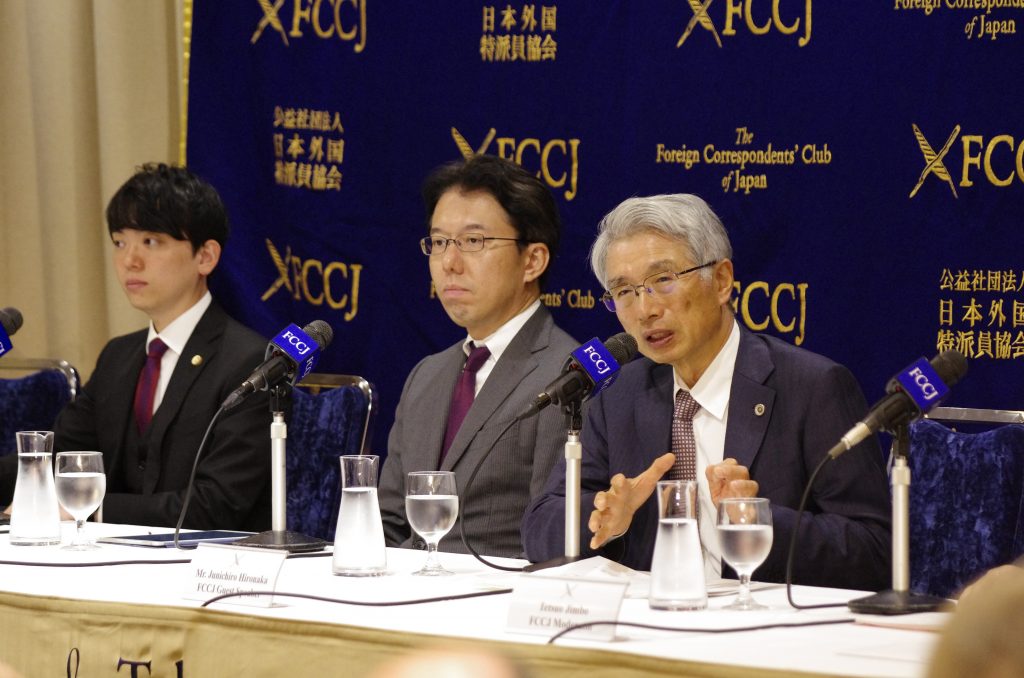Now Reading: Carlos Ghosn’s Japanese lawyers quit after he fled to Lebanon
-
01
Carlos Ghosn’s Japanese lawyers quit after he fled to Lebanon
Carlos Ghosn’s Japanese lawyers quit after he fled to Lebanon

Japanese attorneys representing Carlos Ghosn, including lead lawyer Junichiro Hironaka, nicknamed ‘Razor’, quit on Thursday after the former Nissan chief’s flight to Lebanon from Japan, where he had been facing financial misconduct charges which he has denied.
In an emailed statement, Hironaka stated everyone associated with the case at his practice had resigned, according to Reuters. A spokeswoman there refused to provide a reason.
Takashi Takano, a second lawyer in Ghosn’s three-person legal team, quit as well on Thursday.
Ghosn, who fled Tokyo before the end of the last year, informed Reuters in an interview in Beirut with his wife Carole that he was happy to spend time in Lebanon for the rest of his life and claimed he had been mistreated during his detention and bail in Japan.
Japan has issued international wanted notices for both Carlos and Carole Ghosn, thus making their current stay limited to Japan.
Hironaka, who previously expressed disappointment at his client’s decision to flee, had stated he would quit once Ghosn had settled his account.
The case has brought attention towards Japan’s justice system, igniting a fierce publicity fight between the former businessman and Justice Minister Masako Mori, who has referred to Ghosn’s criticism of the system as “absolutely intolerable.”
Ghosn spent over 120 days in a Tokyo detention center and was interrogated on most days, often for over seven hours without his lawyers, Takano has stated.
Prosecutors questioned Ghosn for the first 43 days without a break, this included Christmas and New Year’s Day.
On Thursday, Ghosn found Australian sports journalist Scott McIntyre, who would become his ally. McIntyre was detained for 44 days for trespassing in a bid to get details on his missing children.
McIntyre pleaded guilty to the charge and was freed on Wednesday with a six-month suspended sentence.
Discussing at a news conference, McIntyre, who was held at the same detention center as Ghosn in western Tokyo for part of his detention, referred to the conditions there as “torture”.
Japanese officials reject such criticism, upholding the justice system to be humane and protecting human rights.
McIntyre stated the lights were on 24 hours a day, making it impossible to sleep more than an hour at night, and that several of his fellow detainees informed him they would confess to crimes they had not committed in order to lower their time there.
Stay Informed With the Latest & Most Important News
Previous Post
Next Post
-
 01Polestar Boss Says It’s Time To Outrun BMW M And Mercedes-AMG
01Polestar Boss Says It’s Time To Outrun BMW M And Mercedes-AMG -
 02Spy Shots: 2027 Mitsubishi Pajero Spotted in Testing Ahead of Possible U.S. Return
02Spy Shots: 2027 Mitsubishi Pajero Spotted in Testing Ahead of Possible U.S. Return -
 032026 Toyota Hilux EV: A Powerful Truck with Silent Torque
032026 Toyota Hilux EV: A Powerful Truck with Silent Torque -
 04Spy Photos: VW ID. Polo GTI Goes Electric with 223 HP and 280 Miles of Range
04Spy Photos: VW ID. Polo GTI Goes Electric with 223 HP and 280 Miles of Range -
![2027 Mercedes-Benz S-Class Debuts with V8 Engine [Photo Gallery]](https://speedlux.com/wp-content/uploads/2026/01/2027-Mercedes-Benz-S-Class-33-155x125.jpg) 052027 Mercedes-Benz S-Class Debuts with V8 Engine [Photo Gallery]
052027 Mercedes-Benz S-Class Debuts with V8 Engine [Photo Gallery] -
 06The Controversial Ford Voodoo V8 That Was Killed Off Too Early
06The Controversial Ford Voodoo V8 That Was Killed Off Too Early -
 07Hyundai Palisade’s Breakout Year Shows How Quickly the Market Can Turn
07Hyundai Palisade’s Breakout Year Shows How Quickly the Market Can Turn


![2027 Mercedes-Benz S-Class Debuts with V8 Engine [Photo Gallery]](https://speedlux.com/wp-content/uploads/2026/01/2027-Mercedes-Benz-S-Class-33-700x394.jpg)











































